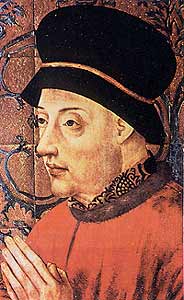SouthernKing
crickety cricket
Welcome! This is my first AAR on this site (not my first story/AAR about a strategy game, I have done several for Civ4 on the Civfanatics forums)
I will be playing as Portugal, using Death and Taxes 3.4 (or whatever was the latest version to not have the 1356 start) and that is what I will be playing throughout (unless, if it is possible to keep the save intact and transfer it to 4.X, then I will transfer. I would appreciate it if someone told me this.). This will be a history book style AAR, written from the perspective of someone in-universe. [Annotations will be written in brackets within the text, like this.] I will try to play in-character, so I will be making some moves that otherwise would be questionable. My goals ATM are to control everywhere that Portugal did historically, and more if possible, and turn Portugal into a sea-spanning empire.
Anyway, I will beautify this post later, when I have the time and motivation. Expect weekly updates.
I will be playing as Portugal, using Death and Taxes 3.4 (or whatever was the latest version to not have the 1356 start) and that is what I will be playing throughout (unless, if it is possible to keep the save intact and transfer it to 4.X, then I will transfer. I would appreciate it if someone told me this.). This will be a history book style AAR, written from the perspective of someone in-universe. [Annotations will be written in brackets within the text, like this.] I will try to play in-character, so I will be making some moves that otherwise would be questionable. My goals ATM are to control everywhere that Portugal did historically, and more if possible, and turn Portugal into a sea-spanning empire.
Anyway, I will beautify this post later, when I have the time and motivation. Expect weekly updates.











